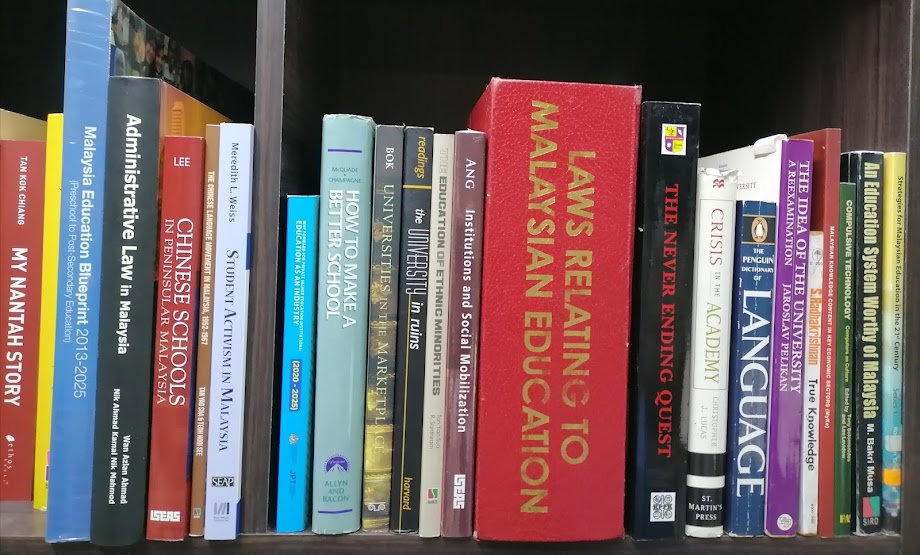Very little attention given to students' interests in the laws or the regulations that describe the rights of the student. This is surprising because education is about students more than any other 'player' in the system, say the academics, the administrators or the regulators of the education system. The laws that we now have are about the setting up of institutions, how many students in the class, the licensing of teachers, the governance of institutions, but nothing about the rights of students. What should they expect when they become a student? how should this expectation be realised? what rights do they have when the expectations are not achieved. There is a general understanding of what these expectations are, but they are not explicit in any of the laws governing education in this country. Outcome-based education, the applied theory in our HE system, requires the outcomes of education to be specified, but whether these outcomes have manifested in the student is not a student decision but part of the assessment system of which he/she is a subject. The examiners measure the outcomes through processes of their creation, but it remains vague if the student has any role in deciding this critical question.
If education is meant to change the student in some way or increase his quantum of knowledge, these are not part of the promises made to the student in the terms of the agreement between the student and the institution. The hype of the sale - 'world-class education', 'cutting edge knowledge' 'high employability program' are all trade puffs that have no litigation value. Courts will reject outright any claim from a student that his education was not world-class. Such phrases are regarded by the law as unactionable inducements, even if they have been relied on by a student when he chose that institution or a particular program. The arid definition of higher education in our legislation is that it is a course of study that on completion entitles the learner who registered for the course to a certificate, diploma or degree. Those are the tangibles he takes away on completion of his 'course of study.' The courts, afraid to intrude into the processes of academia have done little to add flesh to the bare bones of student's rights in education. If processes are followed, the judge will bow deeply to the teacher and depart. No court has ventured to decide what it means to be educated or whether a person going through the process has been educated. Even in jurisdictions where they have ventured into that terrain, they have made no attempt to examine that question but merely deferred to the wisdom of the teacher and his processes to decide it.
If students have little clue about their expectations, they are equally ignorant about the loss of some of their most important rights or in the diminution of their status when they 'become a student'. If the courts have been reluctant to decide on the meaning of education they have with great alacrity decided that the student's role is to study and not disturb the peace or bring disrepute to their institution. If the university decides that participating in a demonstration brings disrepute to the university, it is the university's right to decide the disrepute had occurred. The courts will bow out of that decision too.
Now, if you are a foreign student studying in this country under the relevant visa issued by the gatekeepers to this land, your status is even further diminished. You can be picked up on suspicion and detained without the normal safeguards that are accorded to the student who is a citizen.
We will dedicate a few posts in this Blog to examine the nature of the student's position and rights and whether these need to be reexamined in any reform of higher education. We shall consider in those Blogs;
- The traditional position of students in the university;
- The changing profile of students in HE;
- The contractual rights;
- The rights as a consumer of regulated service and
- The Statutory position of students.


A basic assumption is made in the way education is defined. That in order to lead a good life one must have a good job. The curriculum is tailored accordingly. What is a good job in turn is determined by the market or more particularly by those that control it. Yet the market has failed us. If climate scientists are to believed then the "good jobs" that the market has created have had disastrous effects. Our children, by all reliable accounts, will lead miserable lives in the future.
ReplyDeleteDo we then continue to rely on the market (reigns of power) to define education? Is there a way of designing education so that we provide the means for children to determine for themselves what a good life is? Or do we have no choice in the matter but to hope that the market would alter their priorities and create jobs that would avoid the calamity that otherwise awaits us?
I hope that the author would in the future explore these questions.